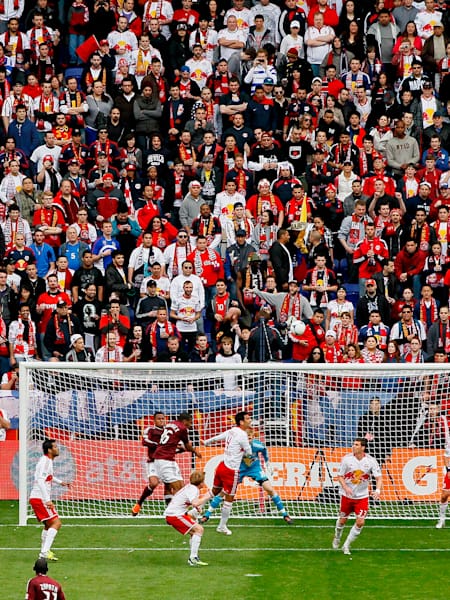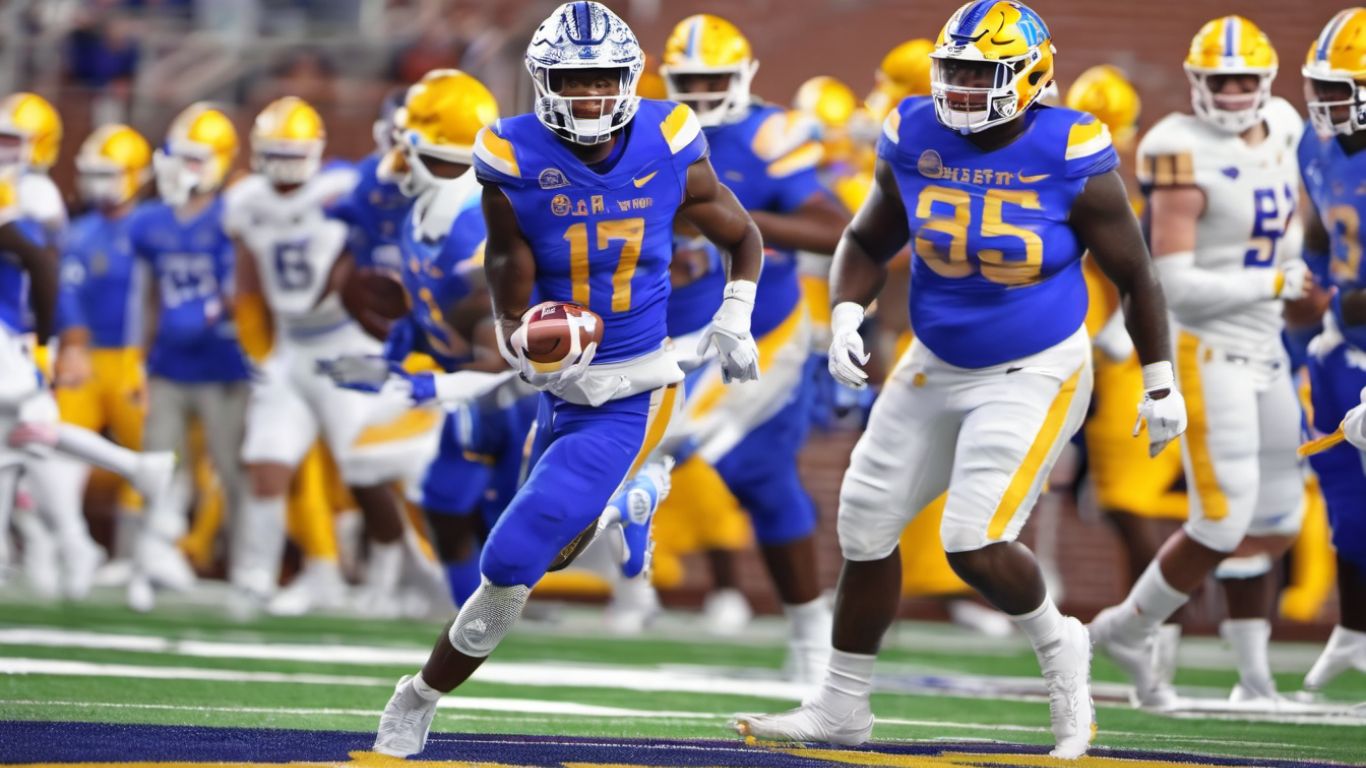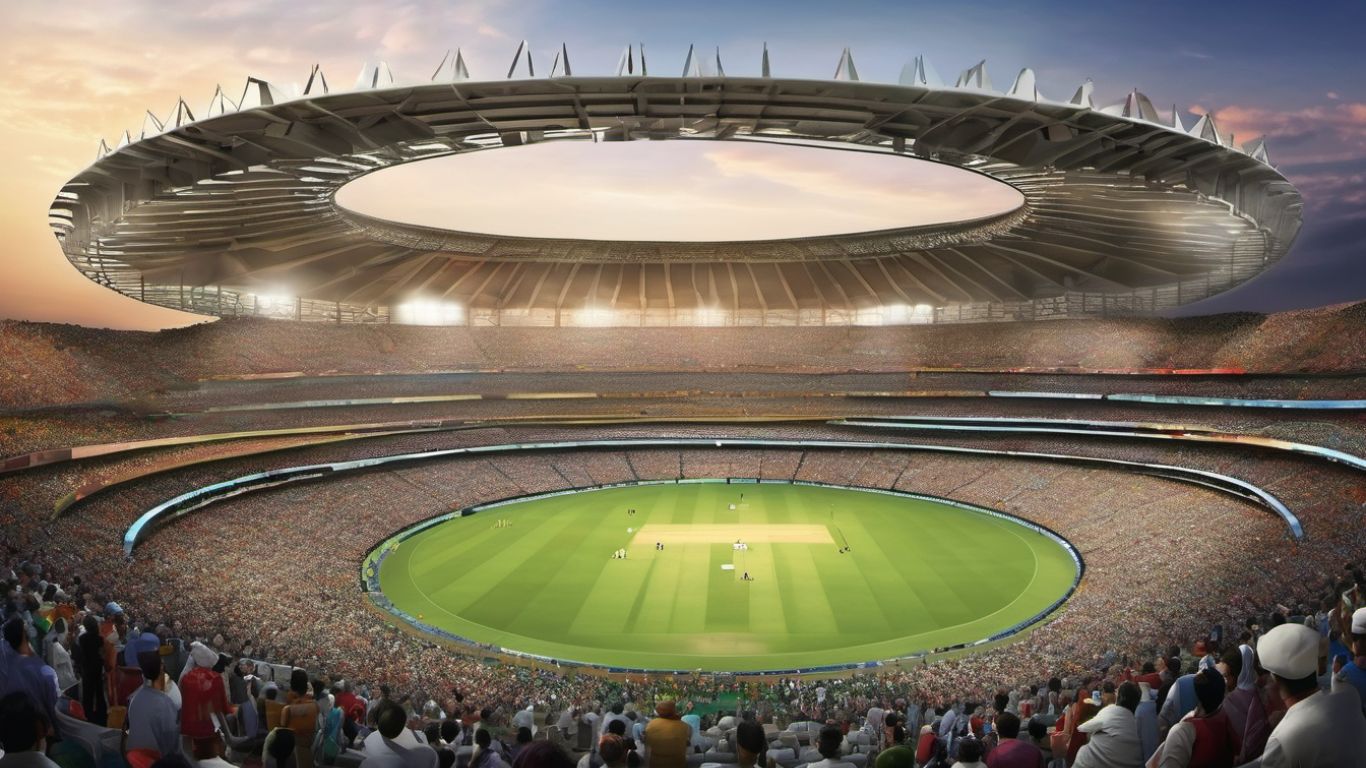A soccer game consists of 90 minutes, divided into two halves of 45 minutes each. Soccer games are typically played over a duration of 90 minutes, with each half lasting 45 minutes.
The game is divided equally into two halves, with a short break in between for players to rest and strategize. Within these 90 minutes, there may be additional time added by the referee, known as injury or stoppage time, to account for any time lost due to player substitutions, injuries, or other interruptions.
This ensures that a fair and complete game is played, giving both teams an equal opportunity to compete. Understanding the duration of a soccer game is crucial for players, spectators, and anyone interested in the sport, as it helps to plan and manage time effectively during match days.
Length Of A Soccer Game
In the world of soccer, the length of a game can be a topic of curiosity for both avid fans and casual spectators. Understanding the duration of a soccer game is crucial for planning your watch parties or following live matches. In this article, we’ll delve into the two key components that dictate the length of a soccer game: regulation time and additional time.
Regulation Time
Regulation time refers to the official duration of a soccer match, consisting of two halves. Each half typically lasts for 45 minutes, leading to a total of 90 minutes of gameplay. During this period, both teams compete to score goals and emerge victorious. To ensure fairness, the referee keeps a close eye on the clock and adds any wasted time or stoppages that occur during the game.
Additional Time
While regulation time accounts for the majority of a soccer game, there are instances where additional time is added to compensate for stoppages in play. Also known as injury time or stoppage time, this additional period is determined by the referee based on factors such as substitutions, injury breaks, time-wasting, or other unforeseen interruptions. The exact amount of additional time is typically displayed on the stadium scoreboard.
It’s important to note that an additional typically comes at the end of each half, but it can also be added during the half if necessary. This ensures that both teams have an equal opportunity to make up for any lost time caused by disruptions during the match.
Here’s a breakdown of soccer game length:
| Component | Duration |
|---|---|
| Regulation Time (2 Halves) | 90 minutes |
| Additional Time | Varies (added by referee) |
| Total Game Length | 90+ minutes (including additional time) |
It’s worth mentioning that the time shown on broadcast or streaming platforms might not accurately reflect the true duration of the match. These platforms often adjust their coverage to accommodate commercial breaks, halftime analysis, or pre-match and post-match discussions.
Now that you have a clearer understanding of the length of a soccer game, you can enjoy each match to its fullest. So grab your snacks, invite your friends, and immerse yourself in the excitement of the beautiful game!

Credit: www.usatoday.com
Understanding Regulation Time
Soccer, also known as football in many parts of the world, is a thrilling and fast-paced sport that captivates millions of fans. One aspect that often confuses newcomers to the game is the duration of a soccer match. In this article, we will delve into the concept of regulation time in a soccer game and provide you with all the details you need to understand how long a match lasts.
Duration Of Each Half
In a soccer game, the duration is divided into two halves, each lasting for 45 minutes. This means that a standard soccer match regulation time is a total of 90 minutes. During these two halves, players showcase their skills, tactics, and strategies in pursuit of victory.
Half-time Break
After the first half of the game, there is a half-time break. This break allows both teams to rest, regroup, and receive any necessary instructions from the coaches. The half-time break typically lasts for 15 minutes.
During this break, players rehydrate, receive medical attention if needed, and analyze their performance in the first half. Coaches can also use this opportunity to make tactical adjustments and motivate their team for the second half.
Regulation Time In Summary
In summary, a regulation soccer match consists of two halves, each lasting for 45 minutes, with a 15-minute half-time break in between. This makes the total duration of a soccer game 90 minutes.
Determining Additional Time
In a soccer game, determining additional time is an essential aspect that adds suspense and excitement to the final moments of a match. The referee plays a crucial role in deciding how many minutes should be added to the game clock. Understanding the reasons for added time and the responsibilities of the referee can give us insights into the dynamics of a soccer match.
Reasons For Added Time
Several factors contribute to the determination of additional time in a soccer game:
- Substitutions: If there are multiple substitutions during a match, it is common for the referee to allocate extra time to compensate for the breaks in play.
- Injuries: When players get injured during the game, it results in stoppages and medical attention, which leads to added time to make up for the pause in action.
- Time-wasting: Players intentionally wasting time, whether through goal celebrations, taking excessively long on throw-ins, or deliberately delaying restarts, can result in additional time being played to make up for the lost minutes.
- VAR (Video Assistant Referee) reviews: The introduction of VAR has added another dimension to the game. If the referee needs to review certain incidents using VAR, it can lead to an extension of the match to ensure fairness and accuracy.
- Other interruptions: Various other factors, such as crowd disturbances, weather conditions, or unusual stoppages, can contribute to extra time being allocated.
Role Of The Referee
The referee has the responsibility to determine and communicate the additional time to the players and officials:
- Timekeeping: Throughout the game, the referee keeps track of the playing time, ensuring that it aligns with the official game clock.
- Deciding additional time: Based on the factors discussed earlier, the referee assesses the need for added time and determines the number of minutes to be played beyond the regulation 90 minutes.
- Communicating with teams: Before the start of added time, the referee informs the team captains and coaches about the duration of additional time, maintaining transparency and minimizing misunderstandings.
- Managing time wasting: The referee plays a vital role in addressing time-wasting tactics by penalizing players through cautions or adding more time to compensate for these actions.
- Ending the game: Once the additional time has been played, the referee blows the final whistle, signaling the end of the match and deciding the outcome.
Understanding how the referee determines additional time in a soccer game adds nuance to the sport and showcases the importance of fair play and maintaining the integrity of the game.

Credit: www.redbull.com
Factors Affecting Game Length
Soccer game length can vary depending on factors such as referee decisions, injuries, stoppage time, and halftime durations. The average duration ranges from 90 to 120 minutes, including additional time.
Factors Affecting Game Length Soccer games are typically 90 minutes long, divided into two 45-minute halves. However, several factors can influence the actual duration of the game. Time Wasting Time wasting by players is a common occurrence in soccer matches. This can include actions such as deliberate slow play, excessive celebration, or feigning injury to run down the clock.
Injury Time In addition to the 90 minutes, the referee can add extra time at the end of each half for injuries and other stoppages. This is known as injury time or stoppage time and is typically indicated by the fourth official holding up a board with the additional minutes.
Video Assistant Referee (VAR) The Video Assistant Referee (VAR) system, introduced to assist match officials in making decisions, can also impact the length of a soccer game. VAR reviews can lead to extended stoppages while the referee consults video footage to make a decision. These factors, alongside the regular 90 minutes of play, contribute to the overall duration of a soccer match.
Famous Matches With Extra Time
When it comes to soccer, matches have the potential to be nail-bitingly close, often going into extra time to determine the winner. In this article, we take a look at famous matches that have seen extra time in both the World Cup Finals and Champions League Finals.
World Cup Finals
The World Cup Finals have provided some of the most thrilling moments in soccer history, with several matches going into extra time to decide the victor. One of the most famous instances of extra time in a World Cup Final occurred in 2014 when Germany faced Argentina in the final match. The two teams were deadlocked at 0-0 after regular time, with Mario Götze’s extra-time goal securing Germany’s victory.
Champions League Finals
The UEFA Champions League Finals have also witnessed their fair share of dramatic extra-time encounters. A standout example is the 1999 final between Manchester United and Bayern Munich. With Bayern leading 1-0 in regular time, Manchester United staged a remarkable comeback in injury time, scoring two goals to clinch the title in extra time.

Credit: fanarch.com
Frequently Asked Questions
Can A Soccer Game Go Over 90 Minutes?
Yes, a soccer game can go over 90 minutes if there is added time due to stoppages during the game. The referee determines how much additional time will be added.
How Many Minutes Is A Fifa Soccer Game?
A FIFA soccer game typically lasts for 90 minutes.
How Many Minutes Is A Full Soccer Match?
A full soccer match typically lasts for 90 minutes, divided into two halves of 45 minutes each.
How Many Minutes Is The World Cup?
The World Cup matches are played for 90 minutes, divided into two 45-minute halves.
Conclusion
To wrap up, the duration of a soccer game typically consists of two halves, each lasting 45 minutes, bringing the total playing time to 90 minutes. However, it’s essential to account for additional stoppage time added by the referee to compensate for delays during the match, including injuries or substitutions.
Understanding the duration is vital for both players and spectators alike. So, whether you’re lacing up your boots or cheering from the stands, knowing how long a soccer game lasts enhances your overall experience.








